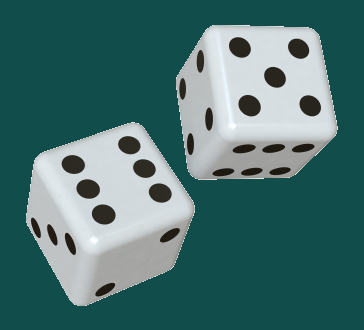Choosing The Prize Behind The Right Door
Lesson Plans > Mathematics > ProbabilityChoosing The Prize Behind The Right Door

There's an old probability question which makes a great discussion and experiment topic for a high school math class. The question centers around a game show, in which the game show host asks you to pick a prize behind one of three doors.
After he asks you to pick, the game show host doesn't open the door you picked. Instead, he opens a different door...one which he already knows is empty. Now, having eliminated one of the choices, he asks you, "Do you want to keep your guess? Or change it?"
Typically, people will answer, "There's a 1 in 2 chance that I'll get it right, so it doesn't make any difference if I change my guess or not, the probability is 1/2 either way!"
And the typical answer is not correct. Surprisingly, your odds are better if you change your guess. Why? Because the odds that you guessed incorrectly in the first place are 2 in 3, or 2/3. The game show's action of opening a door does not change that probability. Which means the odds are better if you switch doors. In fact, 2 times out of 3, you'll be better off switching.
If your students don't believe it, there are two ways you can help them see this.
Experiment
Have the class break up into pairs. In each pair, one person is the game show host. This student will pick a number (one, two, or three), but not tell the other student. The other student makes a guess, and the first student then removes one of the other numbers.
Have the first student always keep his guess the same, and count up how many times he wins. After they have done this many times, switch it around, and have the student always change his guess.
The students can now report back that they do win more frequently by changing their guesses.
Generalize
My favorite way of looking at this problem, is to consider what would happen if there were a million doors. So the player makes his choice, and obviously his odds of having the right door are incredibly small. But now the game show host opens all but one of the remaining doors.
All of a sudden, students see the problem in a whole new light, when they realize that the odds strongly favor the one door the game show host didn't open.

